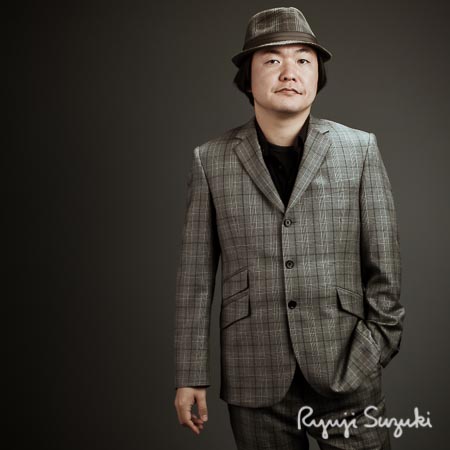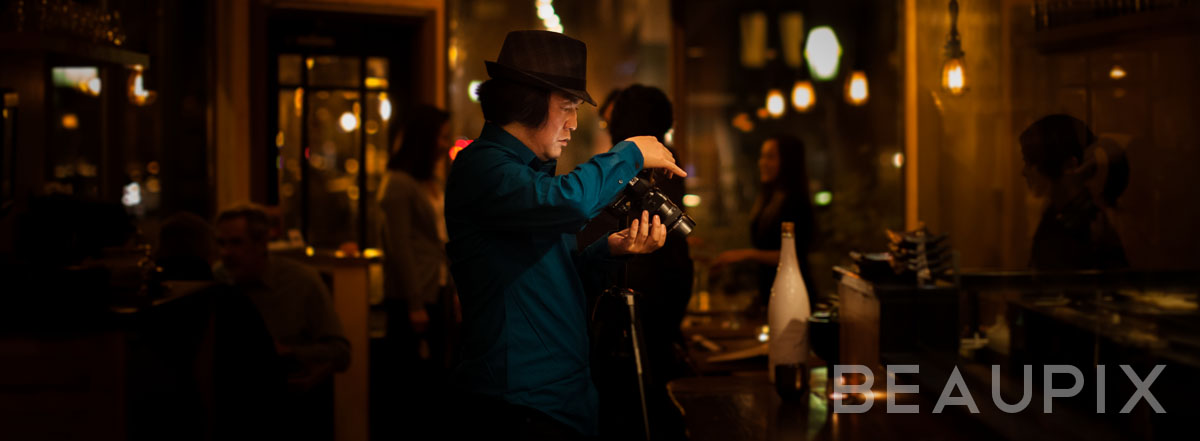About Photographer & Studio
Boston photographer specializing in personality portraits and headshots, with a studio in Fort Point / Seaport.
The studio’s core concepts
1. Empower people: make them look inspiring and successful
Your audience needs a reason to like you. Let’s show some in the forms of enthusiasm, personality, and determination. However, the world is full of bad portraits. People look stiff, try too hard, forced smiles, look apathetic, disengaged, unlikable, and show they hate their jobs or life. Even worse, they make their insecurity even more apparent by trying hard to hide it.
I continually study the art of portraits to find out more ways to capture people’s strengths. If you are a miserable middle manager at a large corporation, for example, and try to make some changes, your headshot could be one place to start and let self-fulfilling prophecy work to your advantage.
(In fact, I hear back from people who got jobs they wanted, won better respect from their coworkers, networked with valuable people in their industry, and people who found the right person through an online dating profile. I can’t guarantee any of these outcomes, but my service is designed to maximize your potential when you are ready for a change.)
I also explore creative approaches to counteract social biases, as evidenced by the diversity of people represented in our sample images.
It’s not a huge creative challenge, but it requires creative problem-solving skills and photographic experience. That’s why I still enjoy shooting headshots after doing this for many years.
2. Real people, genuine character, and authentic image
Sample images on this website are 100% genuine work. Many people had jobs like yours, with bosses that aren’t very nice. Many others needed a job or an upgrade. Many people start our first conversation by telling me that they never liked having pictures taken (but then many of them happily approved to have their photos on this website).
The world is looking for real people showing a bit of their genuine character, and that’s what makes people trust you. I find this to be a very creative process for myself as well as my clients, and I encourage everyone to go one notch further.
(There are photographs of actors, models, musicians, and other creative professionals on pages that describe services for those specific professions, but other pages feature mostly professional, academic, and corporate people within the styles appropriate for their industry roles.)
3. Amplify clarity
Hazy soft-focus portraits are long out of fashion, but people increasingly hide behind blurry concepts and empty communications. I solve problems by understanding your situation, amplify clarity and execute the work to produce compelling photographs.
3.1. Feed-forward information
“Feedbacks” work only after things are done. What if you do a thing only once? Would you like to pay me twice? So I encourage people to tell me about them in advance, and I tell them about how I work in advance, giving them plenty of guidance on preparing for the photo session.
3.2. No pricing game
My pricing is as simple as restaurant bills: add what you ordered. There are no discount programs, complicated pricing mechanisms, or upselling tactics. Those things are a form of obscurity against my clarity goal.

Ryuji Suzuki
Ryuji is a portrait strategist, systems thinker, and conceptual photographer. He runs the most trusted executive photography studio in the region, which is creative industry jargon for spending most of his time cleaning up the mess left by people who thought “just take a quick headshot” was a plan.
With the inconvenient habit of analyzing modern life, he treats portraiture more like writing a character in a novel or a play. It’s not just about how someone looks. It’s about what they carry, how they lead, and what shows up when the usual masks drop. Like a hero in a movie, the subject needs a bit of raw reality to be admired in real life. The goal isn’t perfection. It’s impactful presence.
Do you know how AI portraiture works? It’s the photographic analog of processed food. An algorithmic concatenation of highly processed face components assembled to hopefully pass off as your face while cranking out numerical attractiveness scores. The result: a dead person with Red No. 3 dye on the lips, Red No. 22 on the skin, and creepily symmetrical eyes and mouth. (We don’t have a drug to produce that effect in real life yet.) Ryuji starts with the actual person, figures out what needs to be captured and enhanced, then imagines how they might look on a very good day. He rebuilds the original parts through the retouching process, never swapping in aftermarket knockoffs.
If you’ve ever wondered why your ID photo doesn’t look like the people on this website, it’s not the gear. Ryuji owns a small collection of vintage typewriters, the same models used by legendary writers. But no literary agent is interested in his work, unless they need portraits of their authors. The creative attitude and process matter, not the equipment. One thing is certain: the attitude, the process, the technology—none of it should show in the finished portrait. People rarely think about invisible expertise. That’s why it doesn’t make for much of a sales pitch. Oh well, so it goes…
Awards
Best of Advertising Photography and the Judge’s Choice awards in the 2011 annual image competition of CIPNE, Commercial and Industrial Photographers of New England. The jury panel consisted of Christine Tieri, President and Creative Strategist at Smith & Jones Idea Agency, Bruce Hudson, a Mastercraftsman of the Professional Photographers of America, and Len Lazure, the photo editor of Telegram & Gazette.
Grand Prize of 2006 Vortex by Blue Man Group. Juried by Nora Donnelly, senior registrar at Institute of Contemporary Art, Ricardo D. Barreto, director of UrbanArts Institute at MassArt, Chris McCarthy, director of the Provincetown Art Association and Museum.
Education
Ph.D., Massachusetts Institute of Technology (neuroscience)
